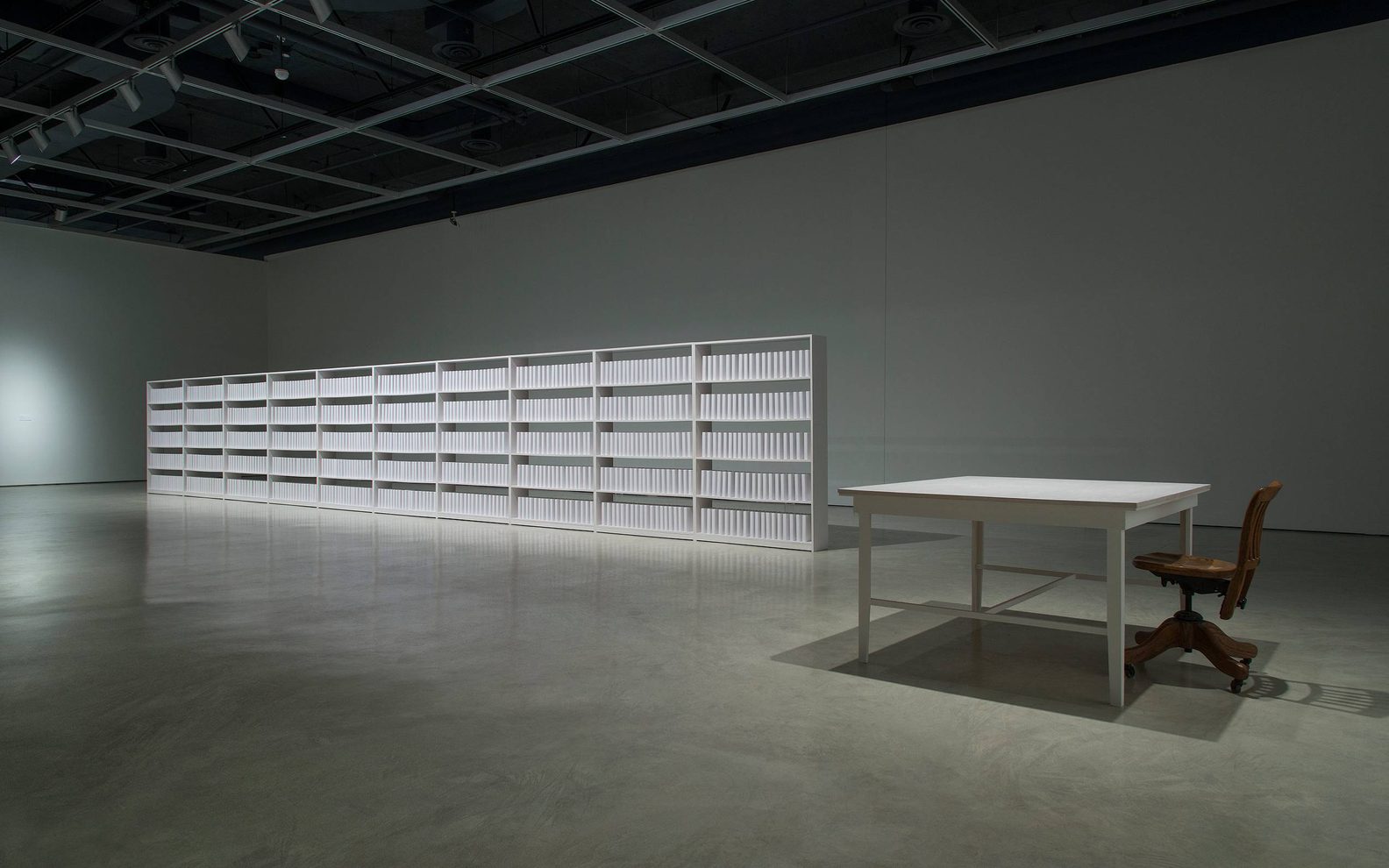
From Baghdad to Timbuktu: Libraries Rising from the Ashes
culture has often been targeted during times of conflict
Jul 14, 2018 - Aug 19, 2018
Temporary Exhibitions Gallery
Throughout history, culture has often been targeted during times of conflict. Monuments, architecture, libraries and works of art have been subject to systematic damage and destruction in an attempt to erase knowledge and artistic achievements. As this installation attests, recent conflicts in Iraq and Mali offer devastating examples. History presents many others: from the Imperial Library of Constantinople (1204), to China’s Old Summer Palace (1800-60), Warsaw’s Old Town (1939), the National Library Sarajevo (1992), to the ancient city of Palmyra (2015).
Paradoxically, what makes cultural heritage so vulnerable to attack is its inherent power. It holds collective memory and shapes identity, reminding us of who we are and why we are here.
Efforts to protect and rebuild this heritage are acts of resistance. They are also acts of hope, striving to heal a society by restoring human dignity.
168:01, Wafaa Bilal
Wafaa Bilal’s contemporary artwork starts out as shelves of blank white books. Over the run of the exhibition, visitors transform the installation – and change the lives of students and faculty at the University of Baghdad’s College of Fine Arts – by donating educational texts.
Visit the exhibition or read on to find out how you can participate in social change by helping to rebuild the College’s lost library!

Mourning a 13th-Century Library and Rebuilding a 21St-Century One
In 2003, the College of Fine Arts at the University of Baghdad lost their entire library due to looters who set fire to the collection during the invasion of Iraq. More than 70,000 books were destroyed. Fifteen years later, students at the college still have few remnants from which to study.
Iraq has a long history of cultural destruction. During the Islamic Golden Age in the 13th century, an invading Mongol army set fire to all the libraries of Baghdad, including the famed House of Wisdom, or Bayt al-Hikma. Legend describes the invaders throwing the Bayt al-Hikma’s entire library into the Tigris River to create a bridge of books for their army to cross. The pages bled ink into the river for seven days (168 hours), at the end of which the books were drained of knowledge.
168:01 refers to the first moment when grief is transformed into a call to action, signaling the beginning of a struggle to move forward from the ashes of ruin. As a monument, 168:01 mourns the loss of the College of Fine Arts Library with a site-specific installation presenting thousands of books of empty pages filling out rows of shelves. Visitors to the installation become participants, linked directly to the students and faculty in Baghdad.
How You Can Participate and Make a Difference
- Choose to purchase and donate an educational text from a wish list compiled by the College’s faculty and students. Donate a book by going to the Wafaa Bilal 168:01 Amazon Wish List. At checkout, on the shipping address page scroll down to “other addresses” and select the Aga Khan Museum.
Please note that only books purchased from the Amazon wish list will be accepted by the Museum. We cannot accept donations of books from personal collections. - OR, choose to donate funds to the 168:01 project through the artist’s website. Funds donated will be exclusively used for the 168:01 project, for things like purchasing books, shipping the books to Baghdad, and repairs to the interior of the College of Fine Arts Library.
Please note that all donations are un USD. - For donating either a book or a minimum of $20 in funds, receive a white book in return as a symbol of the void you have helped to fill and as a reminder of your contribution.
- As newly donated texts displace white books, the library gains in both diversity of knowledge and chromatic vibrancy.
“The work needed to be participatory and needed to have tangible results, not only to engage people who come to encounter the show but also so it would benefit people on the ground in Iraq.”
– Wafaa Bilal
Artist’s Statement
Here, hushed stacks take on the oppressive silence of a tomb, suggesting that cultural destruction is a sustained and compounded loss, re-victimizing each student whose continued lack of educational materials keeps them trapped at the point of devastation. But visitors to the white library encounter a space of duality—a memorial of loss whose persistently austere palette has been transformed into a platform for change. The transformation is multiple … The installation becomes activated from a sterile memorial to a system of exchange, trading blank art books for academic texts and the open possibilities that education affords.
As a platform for encounters, 168:01 generates narratives that multiply beyond its initial scope. For its original exhibition at the Art Gallery of Windsor in 2016, viewers also chose to become volunteers. A spontaneous network of retired librarians offered their time and expertise to develop an open source digital index that catalogues the libraries of all major fine arts schools around the world, thereby paving the way for 168:01 to construct a library on par with any world-class institution of higher learning. Rather than merely replicating its lost archives, 168:01 could now seek to build a database of knowledge that will push the College of Fine Arts Library beyond restoration and into future growth. The transformative encounters among the dispersed network of individuals participating in 168:01 cross steep cultural chasms, connecting distant localities through their combined efforts and shared hopes of building a brighter future.

Wafaa Bilal
Artist

Marco Pavan
Artist
TIMBUKTU
Conflict remains one of the greatest risks to a country’s cultural heritage. In 2012, as the armed conflict that had broken out in Mali escalated in the area around Timbuktu, fear grew for the safety of the many libraries in the region. Home to countless volumes of manuscripts, some dating back to the 13th century, the libraries and their holdings are irreplaceable symbols of Mali’s rich literary heritage.
The film Tutto è Scritto (Everything is Written) documents the work that was undertaken by teams of people to evacuate the manuscripts to places of safekeeping, and the work that is being done today to preserve, protect, and digitize them. The film was directed by Marco Pavan and produced by the Fondazione Benetton’s Imago Mundi project.
In the News:
The Globe and Mail, July 11, 2018
A library rises from the ashes in Wafaa Bilal’s new Aga Khan Museum installation
The Toronto Star, July 18, 2018
Visitors to the Aga Khan Museum can help rebuild a destroyed Iraq library, book by book
CBC, July 18, 2018
New Aga Khan exhibit focuses on libraries
Art Forum, August 1, 2018
Wafaa Bilal at Aga Khan Museum
The Art Newspaper, August 7, 2018
Art installation in Canada helps rebuild burnt-out library in Iraq
Curator: Dr. Filiz Çakir Phillip